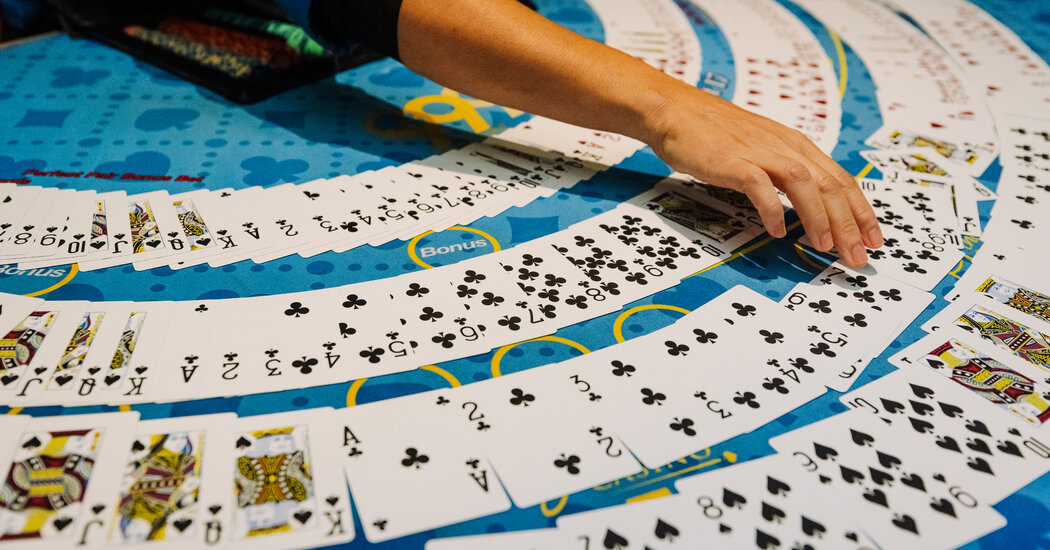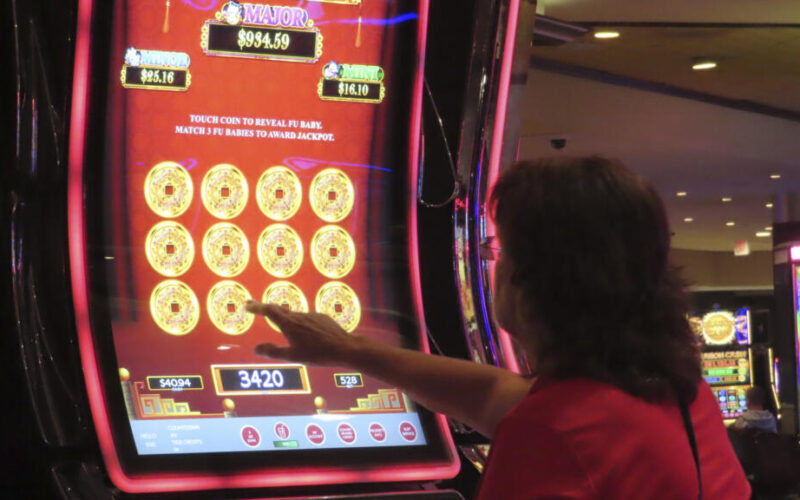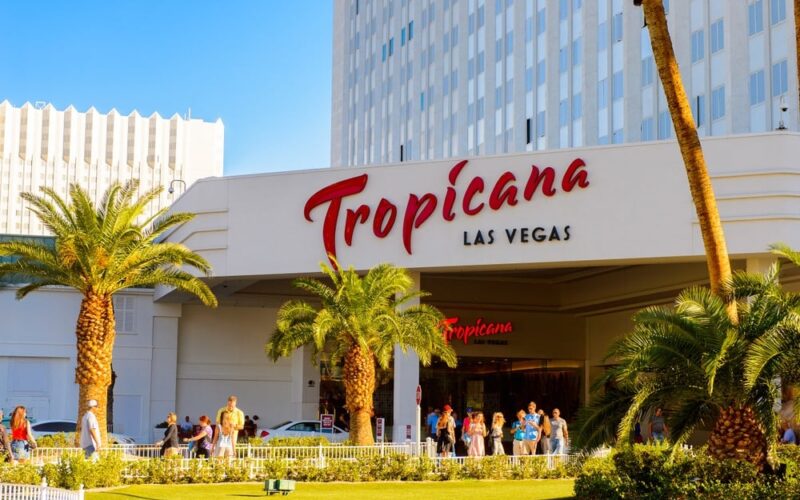In the sprawl of Los Angeles County, a handful of casinos have operated for decades.There’s the crescent-shaped casino in Commerce, an industrial city off Interstate 5. A warehouse-like gambling parlor in Hawaiian Gardens, a short drive south. Two card rooms in Gardena, a nearby suburb.Beyond being places to gamble and unwind, they have two things in common. They generate a large portion of their cities’ revenue. And their existence may soon be challenged in court by California’s tribal nations.After a multimillion-dollar lobbying battle, state legislation signed into law last month allows Native American tribes, which own some of California’s largest and most lucrative casinos, to dispute the legality of certain games played inside these small, privately owned gambling halls.Tribes have argued that such casinos — also known as card rooms because they have only table games and not slot machines — have siphoned millions of dollars away from them.The new law opened a window until April 1 for tribes to take their case to state courts, where they had lacked legal standing. At particular issue is whether the card rooms offer games considered Las Vegas-style gambling, to which the tribes have exclusive rights in California.A group called the California Cardroom Alliance has said the law puts jobs at risk.“The measure could easily force card rooms out of business,” Keith Sharp, the group’s president, said in a letter to lawmakers over the summer. He pointed to a potential loss of $500 million in state, county and municipal tax revenue — meaning less money spent on things like education, public health and infrastructure. The group expects lawsuits to be filed.But representatives of the tribes say it is a long-overdue step toward fairness.“For much of California history, tribes have been precluded from having access to justice to defend what was rightfully ours,” said James Siva, a member of the Morongo Band of Mission Indians and chairman of the California Nations Indian Gaming Association, which supported the measure.The law is a step toward transparency, Mr. Siva said, and the card room operators’ opposition “makes plainly apparent that these establishments are not at all confident that what they are doing is legal.”Blackjack, for example, is a Las Vegas-style game, leaders of Mr. Siva’s association contend, and they say offering it in card rooms violates the penal code and the state Constitution. Whether the house does the banking is the key issue in applying the Las Vegas model.The state penal code bans card rooms from taking direct wagers, so they typically use third-party companies whose employees handle chips and pay out winnings. The California Cardroom Alliance says this arrangement has been approved by the state’s Department of Justice for decades.Josh Newman, the state senator who sponsored the legislation, said it was meant simply to offer tribes their day in court to clarify the legal boundaries. In response to his support, Mr. Newman has faced a backlash from unions, including members of a local chapter of the American Federation of State, County and Municipal Employees, who protested outside his district office.“As to the possible impact, if in fact a court finds in favor of the tribes, I have an immense amount of sympathy for the workers and other affected community entities,” Mr. Newman said in an interview. But he added, “This is a matter of law and not of policy.”Tribes made donations totaling hundreds of thousands of dollars to lawmakers on committees that helped advance the measure in Sacramento.More than 60 tribal casinos operate statewide, including several resort-style operations in the desert east of Los Angeles, competing with the allure of Las Vegas, a four-hour drive away. The casinos, authorized by federal law in the late 1980s, add nearly $35 billion to the California economy, according to the American Gaming Association.The state’s history of smaller card rooms, in contrast, dates back to the Gold Rush. These days there are roughly 80, overseen by a pair of state agencies, the Bureau of Gambling Control and the Gambling Control Commission — which, among other things, make sure that licenses are up-to-date and approve games played at card rooms. The card rooms make their money from seat fees, events, food and alcohol.In Hawaiian Gardens, the venue is the Gardens Casino, tucked off a busy thoroughfare lined with Mexican restaurants and near a freeway exit. But the city, which has 14,000 residents, most of them Latino, is largely a bedroom community, with single-story homes and neatly manicured lawns within its one-square-mile confines. (Its quirky name comes from a popular drink stand in the 1920s that was decorated with palms and bamboo.)“The casino keeps us afloat financially,” said Mayor Victor Farfan. “There are real-world consequences to all of this.”In addition to being the city’s largest employer with 1,100 workers, the privately owned casino yields about $13 million a year in taxes. (The casino spent $9 million on lobbying and other political activities over the past year, including efforts to fight the legislation.) The funds help pay for, among other things, law enforcement, a recreation center and programs for children and seniors.When he was growing up in the 1980s in this densely populated sliver of Southern California, Mr. Farfan acknowledges, there was little that drew people to his community.“We didn’t have the Pacific Ocean like Santa Monica,” he said. “We didn’t have Disneyland like Anaheim.”Then, in the late 1990s, the casino opened. Mr. Farfan remembers staring in awe at the cars jamming the parking lot, with hundreds of people pouring in daily.Initially, he said, some in the community were worried. “With a casino comes whispers of drugs and prostitution,” he said, but “it has been everything but that scenario.”Inside on a recent weekday morning, tables were mostly crowded with middle-aged men sipping from Corona bottles and playing blackjack and poker. Many of the patrons come from just across the line in Orange County, where there is no gambling.It is not hard for Mr. Farfan to imagine what would happen to the city if the card room were closed. That happened in 2020 during the Covid-19 pandemic, when card rooms closed for nearly a year in Los Angeles County, at a significant cost to both the casino and the city.“We laid off city staff, cut hours as well,” Mr. Farfan said. “We simply could not pay people.”Fourteen miles north, the city of Commerce feels the impact of its own card room, the Commerce.Gisselle Delgado, 31, is a management analyst for the city. She has worked in government-related fields in cities across Los Angeles County for much of the past decade — and smaller cities like Commerce, she said, are often overshadowed by places like Los Angeles and Santa Monica.She does not gamble. But she knows that the taxes from gambling have funded her salary — along with about 40 percent of the municipal budget.“The casinos are a lifeline,” she said, “not a burden.”
Source link

October 23, 2024
Casino Lifestyle


